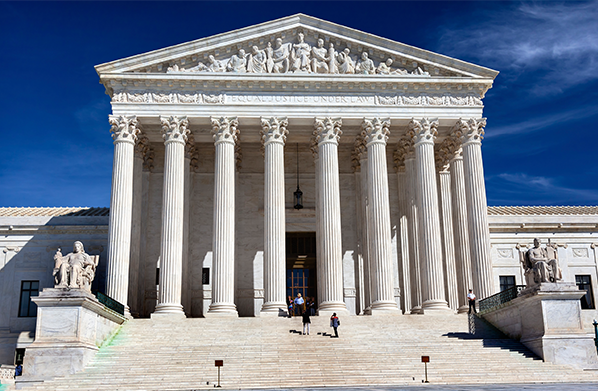The rumor that Justice Clarence Thomas is on the verge of retirement was shot down by his wife, to the relief of conservatives. But that wasn't the only development today that reminds us just how precariously balanced the Supreme Court is.
Also today Justice Sonia Sotomayor submitted what the Daily Caller characterized as a "racially-charged dissent in a Fourth Amendment case on Monday, which commentators hailed as a 'Brown/Black Lives Matter manifesto.'”
The case is Utah v. Strieff, which deals with the Fourth Amendment's exclusionary rule, which states that information gained illegally cannot be used in a criminal trial. In this instance, Salt Lake City police had a tip that there was drug activity in a particular house.
Observing mildly suspicious activity, the police officer, after several hours of surveillance, decided to stop the first person to exit the house. That turned out to be Edward Strieff. On checking the police found out he had a warrant out for a minor traffic violation and that he had methamphetamine. He was arrested.
The stop was illegal, but could the evidence found in Strieff's possession be used in Court or was it protected by the exclusionary rule? The Supreme Court ruled 5-3 that, while the stop was illegal, the evidence and arrest were legal. Justice Thomas wrote the majority opinion. Chief Justice John Roberts and Justices Kennedy, Breyer, and Alito concurred.
Sotomayor wrote a blistering dissent (joined in part by Justice Ginsburg):
“The white defendant in this case shows that anyone’s dignity can be violated in this manner,” she wrote. “But it is no secret that people of color are disproportionate victims of this type of scrutiny. For generations, black and brown parents have given their children ‘the talk’— instructing them never to run down the street; always keep your hands where they can be seen; do not even think of talking back to a stranger—all out of fear of how an officer with a gun will react to them.”
“We must not pretend that the countless people who are routinely targeted by police are ‘isolated,’” she continued. “They are the canaries in the coal mine whose deaths, civil and literal, warn us that no one can breathe in this atmosphere.”
Elsewhere in the dissent, she characterizes the United States as a “carceral state,” and pillories the “civil death” endured by those subject to arrest, a process she describes in vivid terms. She also accuses the Court of treating minority communities as “second class citizens.”
The dissent’s citations are as interesting as the text itself, which read like a survey of the American black literary tradition. At various points, she cites “The Souls of Black Folk,” by W. E. B. Du Bois, Michelle Alexander, a law professor who has written extensively on over incarceration, and the more radical works of James Baldwin and Ta-Nehisi Coates.
Nobody would deny that there remains some racism in the country and that it is shameful. But Justice Sotomayor's portrait of our society as racist is unfair and unrealistic.
This dissent and the Thomas rumor today remind us that the Supreme Court hangs in the balance.


